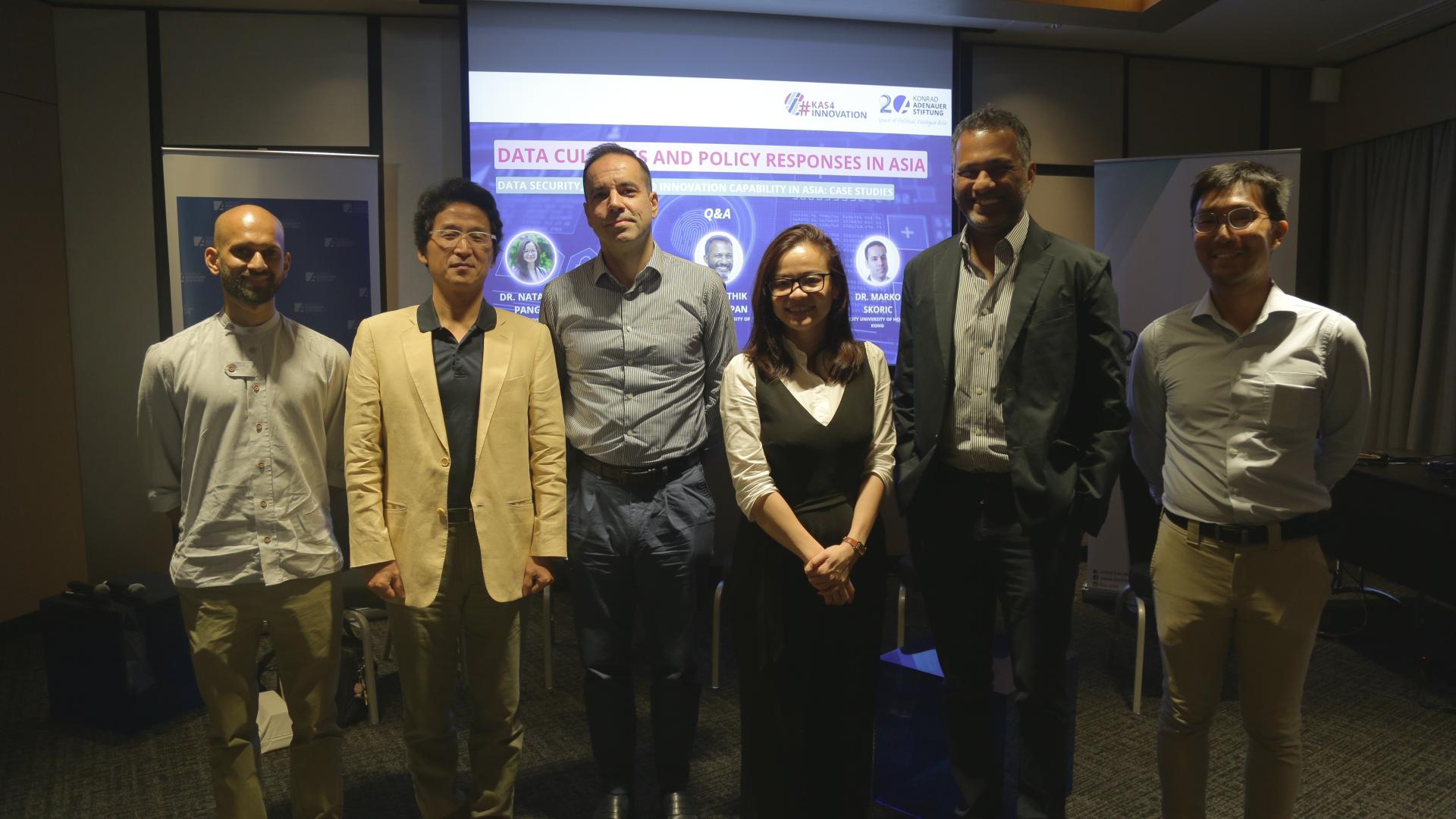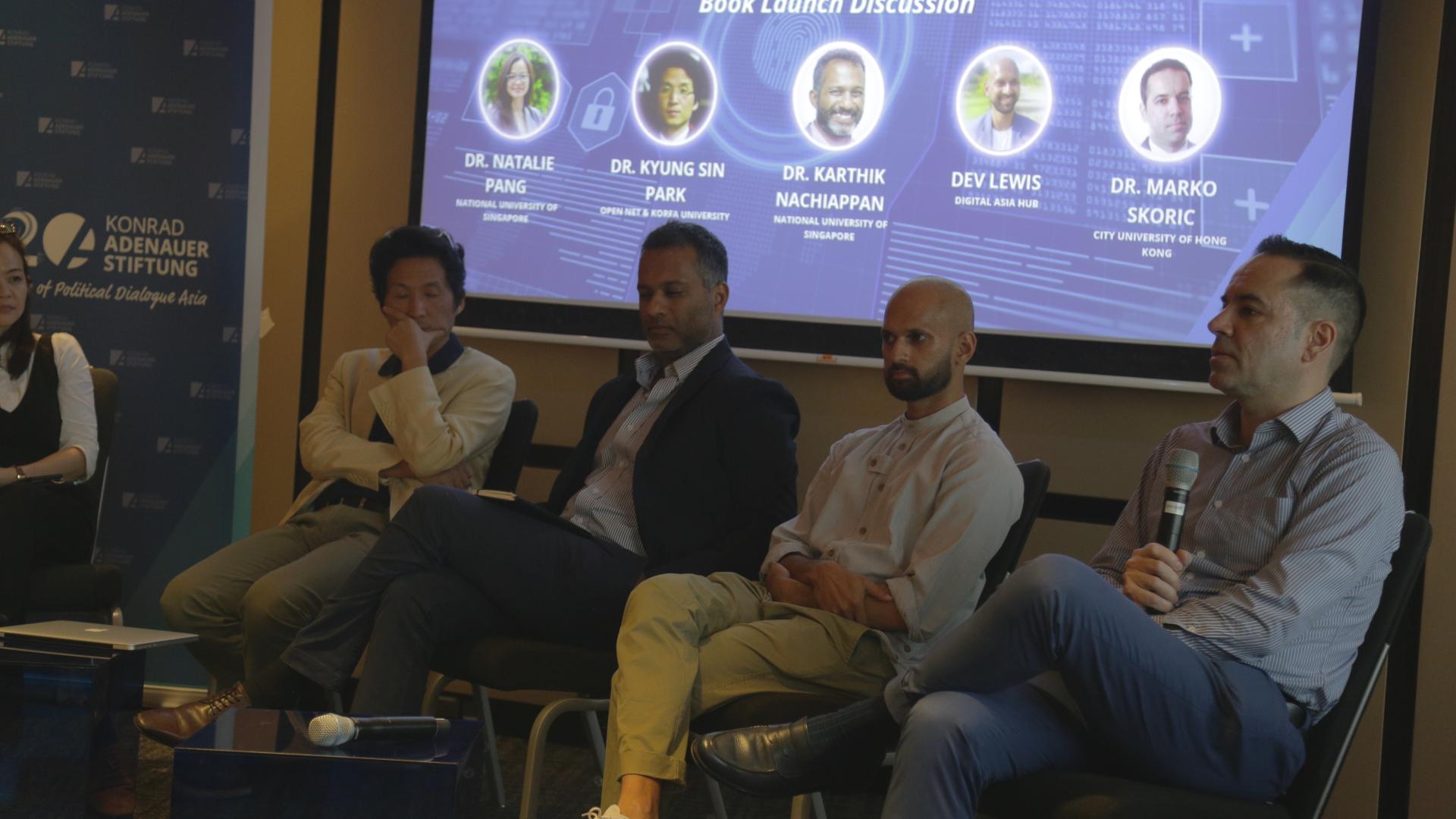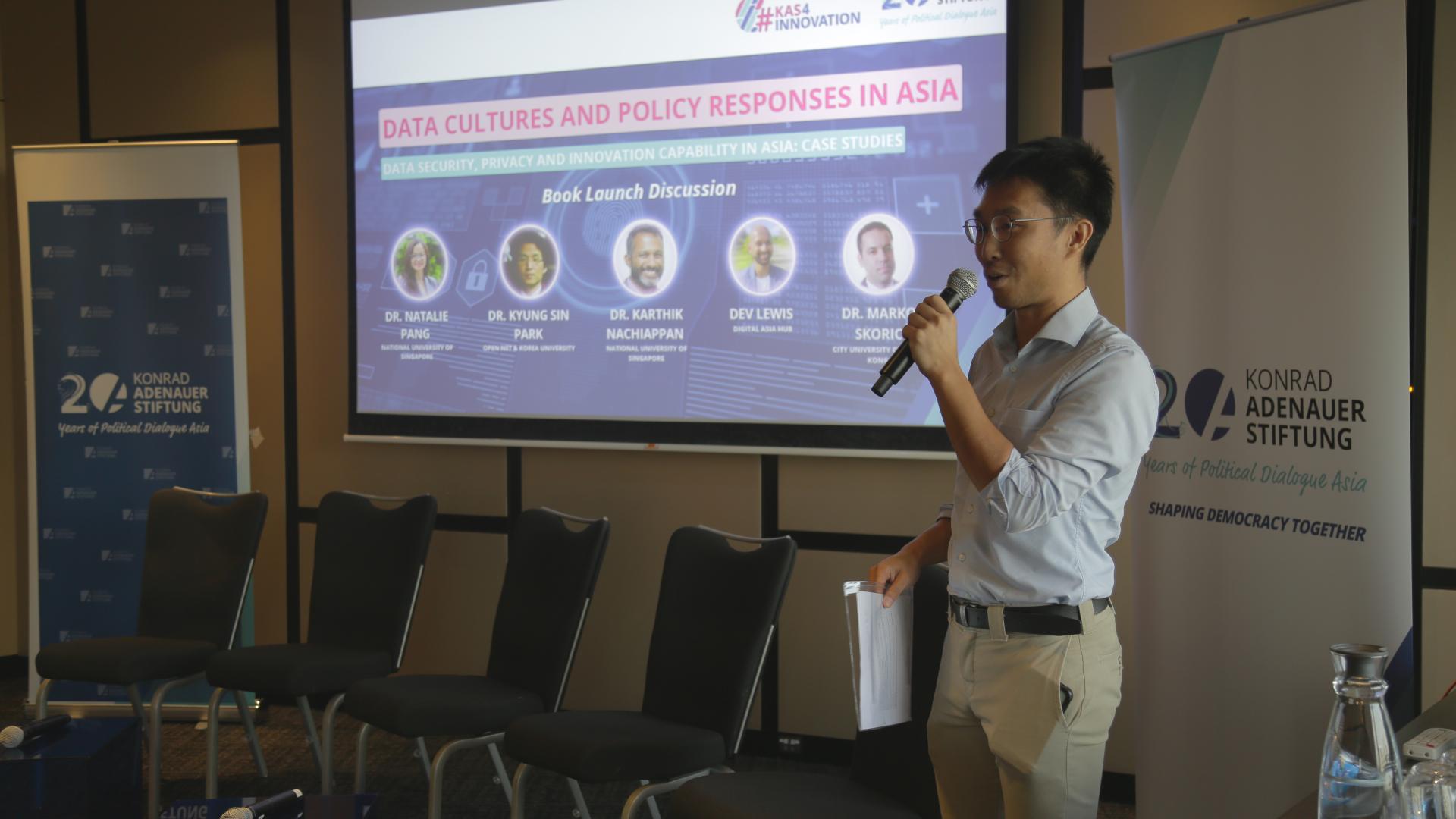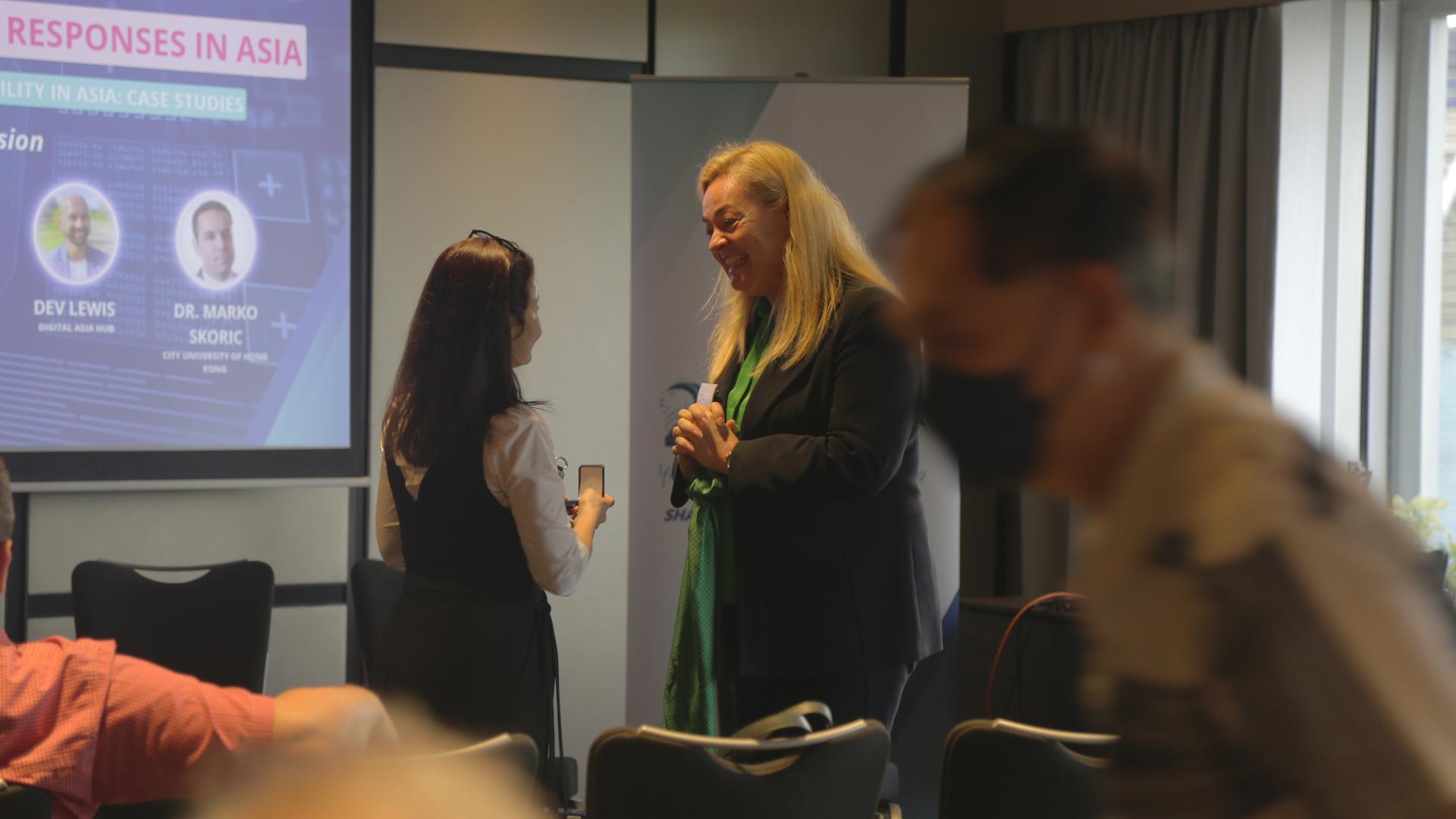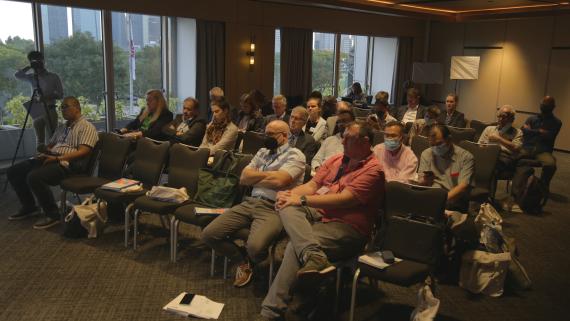(Please find at the bottom of this page the full recorded video of the panel discussion.)
Background
Data is the key to drive new technologies and economic growth. Yet the harvesting of personal data has caused increasing concern about the protection of individual privacy. Asia has been adopting new technologies faster than other part of the world. How do territories in this region, with diverse social, cultural and economic background, respond to this rising challenge? What approach do they take to balance data security, privacy and innovation? In addition, what are the citizens’ attitudes towards digitalisation and data protection?
This event celebrates the launch of our publication “Data Security, Privacy and Innovation Capability in Asia: Case Studies”, which examines data policies and regulations in 7 different countries/regions in Asia with analysis on areas such as transport, finance, administration, e-health and e-commerce etc.
Summary
Dr. Natalie Pang, the chief editor and author of the publication presented the integrated findings of the book, including the methodology, background of the research and the research questions. Based on her findings, although citizens expressed often their concern over data privacy, their behaviours are not aligned with their concerns, for example, they are very willing to disclose their private data for rewards from companies. Privacy also has a cultural background so citizens from each country in the research can have different understanding on privacy and can be reflected by their concern. Another insight is that innovation tends to outpace regulations, which pose great challenges for policymakers to formulate laws and regulations to balance interests from different stakeholders. Also all the case studies showed that all countries are putting huge efforts to make new regulations in response to the EU’s GDPR.
After the sharing of the integrated findings, each author provided insights from their individual chapters.
Prof. Kyungsin PARK talked about the data law in Korea, which focused on the dilemma on data protection, ownership as well as data tracking. During the COVID time, Korea is the only country that has non consensus data tracking. He pointed out that data protection doesn’t need to be data ownership. As long as their data cannot be tracked, they are willing to share the data for public goods.
Dr Karthik Nachiappan continued to share India’s experience on data regulations. He pointed out that The state dominates almost every narrative and the state is the foremost driver of innovation in India. All of these has happened because there is no data protection architecture as the proposed Personal Data Protection Bill was withdrawn recently as there is a strong criticism that the law is not enough to protect privacy and granted the government excessive power to access personal data without consent. Another dimension of data regulation by India’s state is the pursuance of data localization in which there is a national security concerns over cross-border data flow. The recent tightening rules against VPN providers also echoed this point that the state is trying to tighten control over data and civil rights, which can be a worrying situation.
Next, Dev Lewis talked about the China’s data regulations. He mentioned that data is now the 5th production factor of production alongside land, labour, capital and technology, which reflects data is now playing an important role in boosting economy as can be seen by major tech giants in China (Alibaba, Tencent, Bytdance) that owning and processing huge amount of data can generate tremendous profit. Therefore, data is seen as a national economic asset and a national security threats in China. This can explain their motives behind the cases of punishing Alibaba and Didi Chuxin for violating the data security.
Dr. Marko Skoric continued sharing the experience in Hong Kong about the privacy culture. He said that although people do care about data privacy, but they will be easily willing to give up their data to private companies as long as they receive financial incentives to do so. On the other hand, HK government is collecting huge amount of data during the COVID time as people have to scan QR code whenever they enter into different restaurants, government premises, shopping malls etc. This aroused concerns of the people how they are doing with the collected data.
Later the floor was opened for questions from the audience and it continued the discussion on the data culture, cybersecurity, national security topics in Asia.
Please find below the full recorded video of the panel discussion.



